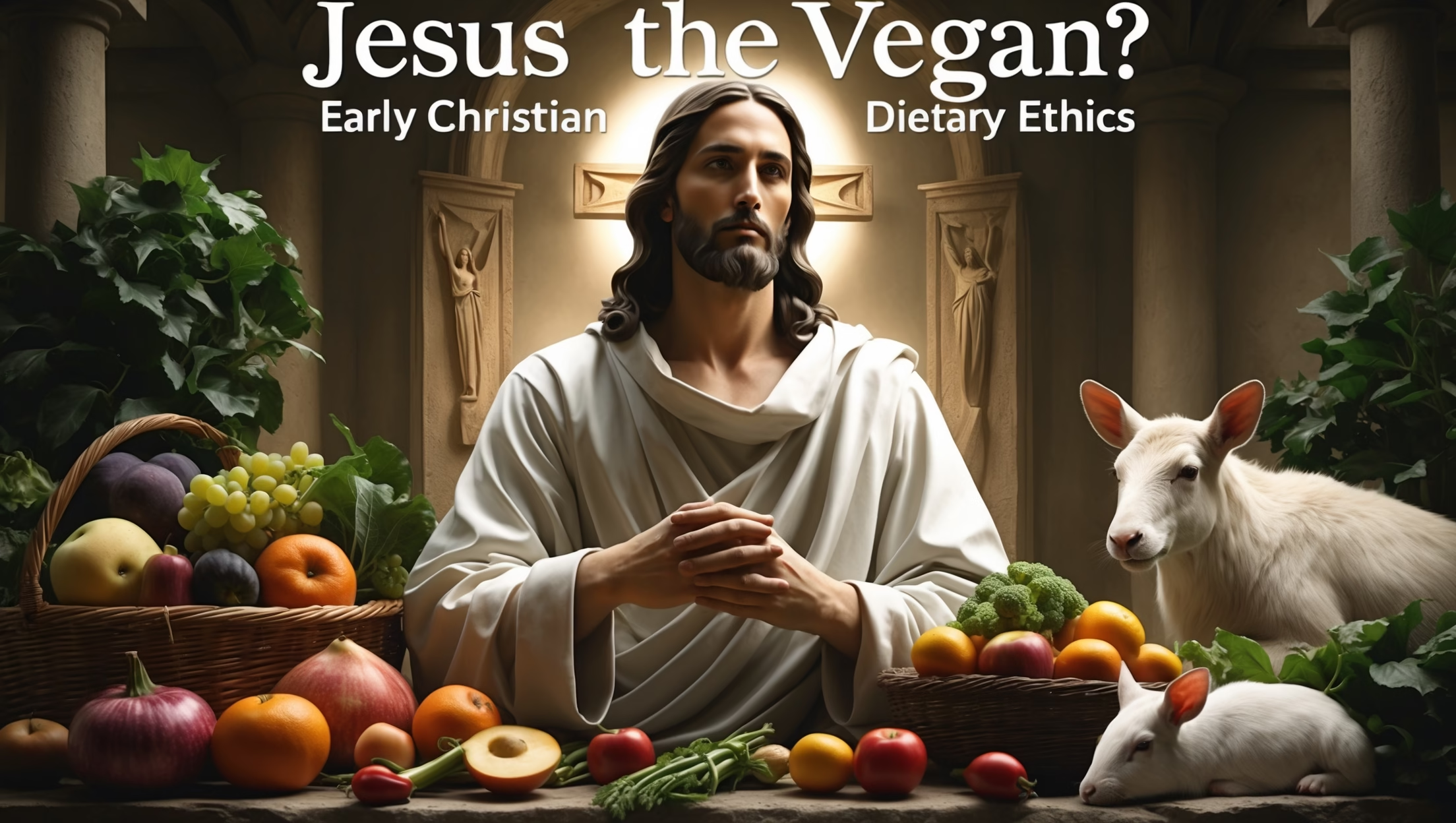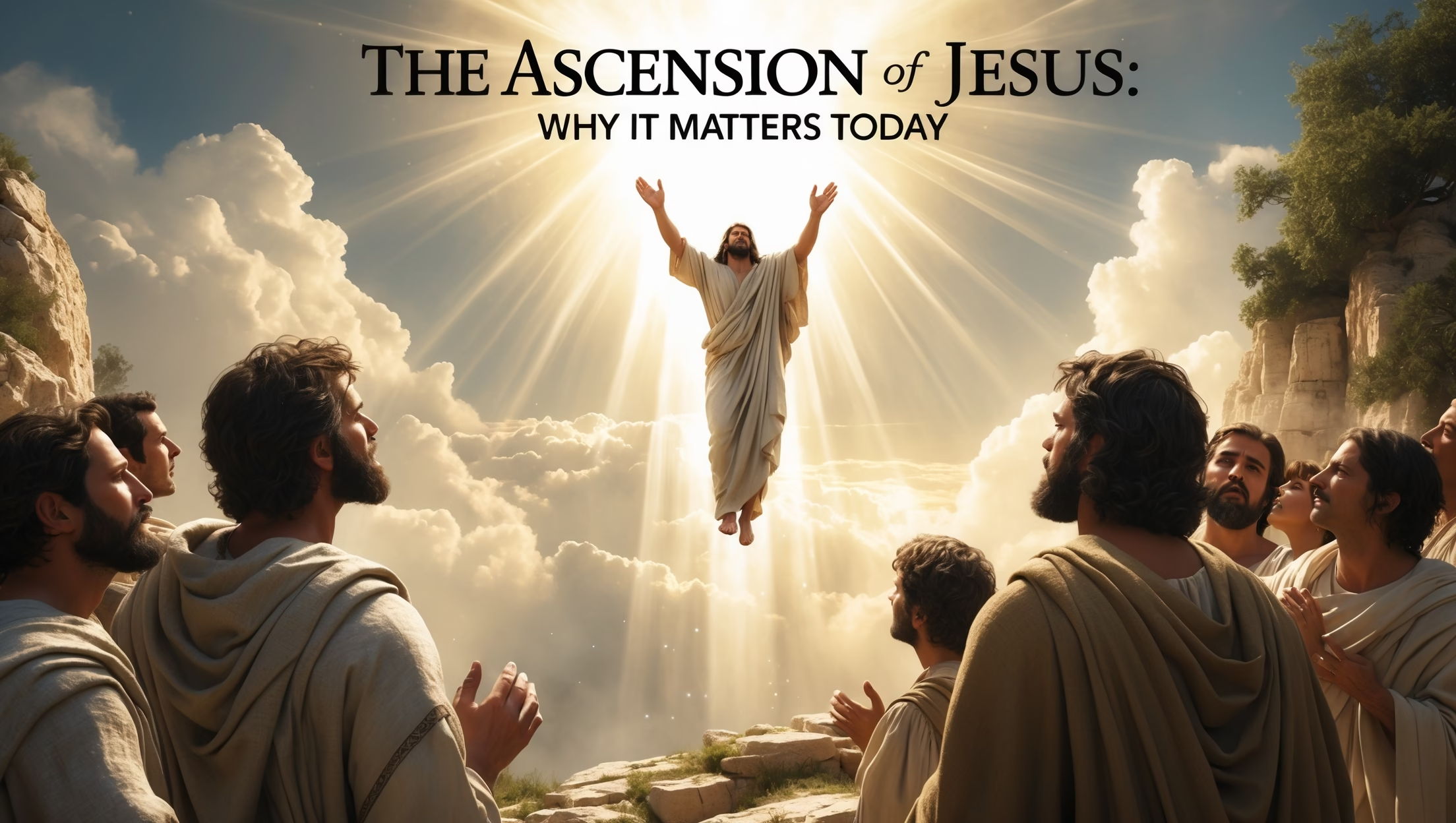Reexamining Christ’s Teachings on Food, Animals, and Compassion
When we think of Jesus’ ministry, images of miracles, parables, and sacrificial love dominate. But a provocative question has emerged among some scholars and ethical theologians: Did Jesus model a diet rooted in compassion, possibly even plant-based? While He famously multiplied fish for the multitudes (Matthew 14:13-21; John 6:1-14) and ate fish post-resurrection (Luke 24:42-43), His broader ethical teachings may point to a concern for the welfare of animals and a vision of creation unmarred by violence. This discussion reframes Christian ethics in light of diet, ecology, and moral responsibility.

The Edenic Ideal: Plant-Based Origins
The Hebrew Scriptures depict an original diet without bloodshed:
- Genesis 1:29: God gives humankind “every seed-bearing plant…for food.” Early Christian interpreters, like Clement of Alexandria, saw Eden’s diet as a moral and spiritual ideal.
- Symbolic Significance: Eating plants rather than animals symbolizes harmony with creation, echoing Christ’s vision of a restored kingdom where “the wolf will live with the lamb” (Isaiah 11:6).
Some argue that Jesus’ teachings about mercy, compassion, and stewardship of creation implicitly endorse a diet that minimizes harm to sentient beings.
Ethical Resonances in the Decalogue
The commandment “Thou shalt not kill” (Exodus 20:13) carries more nuance than often acknowledged:
- Greek Language: The term phoneuo in the Septuagint can refer broadly to taking life, potentially extending ethical concern to animals.
- Early Jewish-Christian Practice: Groups like the Ebionites reportedly abstained from meat, reflecting ascetic and compassionate interpretations of Torah law.
Jesus’ radical ethic of love (Matthew 5:44) and care for the marginalized can, by extension, include the voiceless creatures of God’s creation.
Feeding Miracles: Cultural Accommodation or Ethical Compromise?
At first glance, the Gospels’ fish miracles seem to contradict a vegan ethic:
- Feeding the Multitudes: Jesus multiplies loaves and fishes to feed thousands. Scholars suggest this may reflect pragmatic accommodation to first-century dietary norms rather than doctrinal endorsement of meat consumption.
- Post-Resurrection Fish Meal: Luke 24:42-43 records Jesus eating fish to prove His bodily resurrection. Some interpretations see this as a symbolic vision for teaching, emphasizing relational and communal nourishment over specific dietary prescriptions.
Thus, the consumption of fish in the narrative may not negate a broader ethical trajectory toward nonviolence and compassion.
Counterarguments from Scripture
Several texts challenge a strict plant-based reading:
- Passover Lamb: Jesus’ participation in the Passover meal (Matthew 26:17-19) involved lamb, central to Jewish ritual and symbolic of God’s salvific plan.
- Peter’s Vision: Acts 10:9-16 describes a divine message permitting the eating of all animals, interpreted as both cultural and spiritual instruction.
- Paul’s Warnings: In 1 Timothy 4:1-5, Paul cautions against ascetic restrictions on food, affirming that God created all foods to be received with thanksgiving.
These texts suggest that the biblical witness balances ethical concern with cultural context and theological symbolism, leaving room for both ethical vegetarianism and traditional dietary practices.
Early Church Perspectives
Several early Christian thinkers reflected on diet as an ethical issue:
- Clement of Alexandria: Advocated abstinence from meat as a spiritual discipline, linking dietary restraint to moral development.
- Origen: Promoted moderation and compassion in consumption, reflecting concern for the ethical implications of taking life.
- Franciscan Traditions: Later monastic communities practiced vegetarianism or veganism, framing diet as kinship with creation and moral responsibility.
These voices show that early Christianity included diverse approaches to food ethics, some of which resonate with modern vegetarian and vegan thought.
Modern Movements Inspired by Jesus’ Ethics
In recent decades, ethical vegetarianism and veganism have drawn inspiration from Christ’s teachings:
- Christian Vegetarian Association: Uses Scripture to argue for plant-based living as an expression of love and stewardship.
- Eco-Theology: Links animal agriculture to environmental degradation, connecting dietary choices to creation care.
- Franciscan Vegan Monasteries: Emphasize the kinship of all creatures, echoing Jesus’ teaching that God values the sparrow and cares for the lilies of the field (Matthew 6:26-30).
These movements interpret Christ’s ethic of compassion as extending beyond human relationships to include all sentient beings.
Why It Matters Today
- Ethical Reflection: In an era of industrial farming, climate change, and biodiversity loss, Jesus’ ethic of mercy invites Christians to consider the moral weight of their dietary choices.
- Spiritual Practice: Food becomes a medium for discipleship, cultivating mindfulness, gratitude, and nonviolence.
- Ecological Responsibility: Vegetarian and vegan lifestyles align with a broader vision of God’s kingdom, where creation flourishes without exploitation.
Modern readers are challenged to ask: If the Lamb of God embodies ultimate compassion, how should that shape human treatment of animals and the planet?
Conclusion
Whether or not Jesus adhered strictly to a plant-based diet, His teachings consistently emphasize mercy, stewardship, and care for creation. The provocative question of a “vegan Jesus” illuminates broader ethical concerns: how faith shapes behavior, how compassion extends beyond human boundaries, and how Christians interpret Scripture in light of modern challenges.
By reexamining Christ’s teachings on food and animals, believers can find a rich intersection of theology, ethics, and ecology—inviting a faith that honors both the Creator and the creatures of creation. In a world facing ethical and environmental crises, Jesus’ model offers a guide for thoughtful, compassionate living that transcends mere ritual and engages deeply with the moral fabric of daily life.










